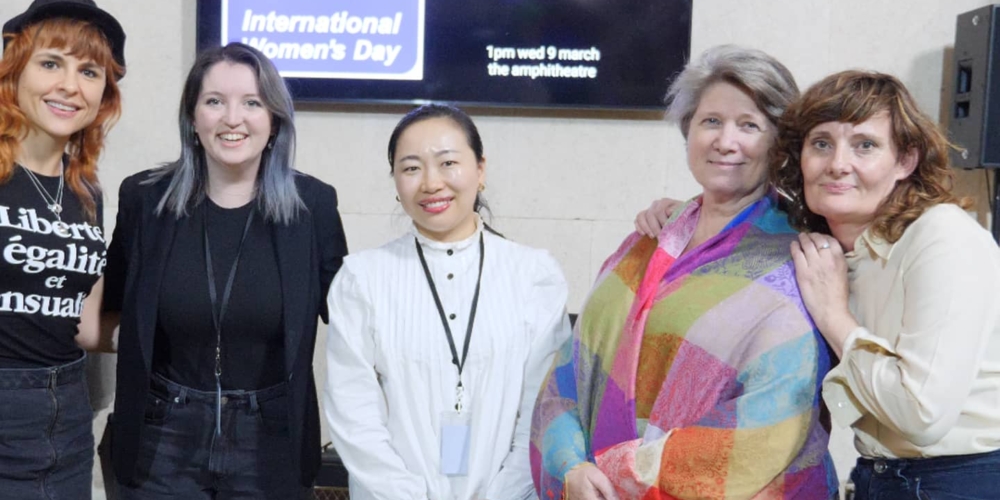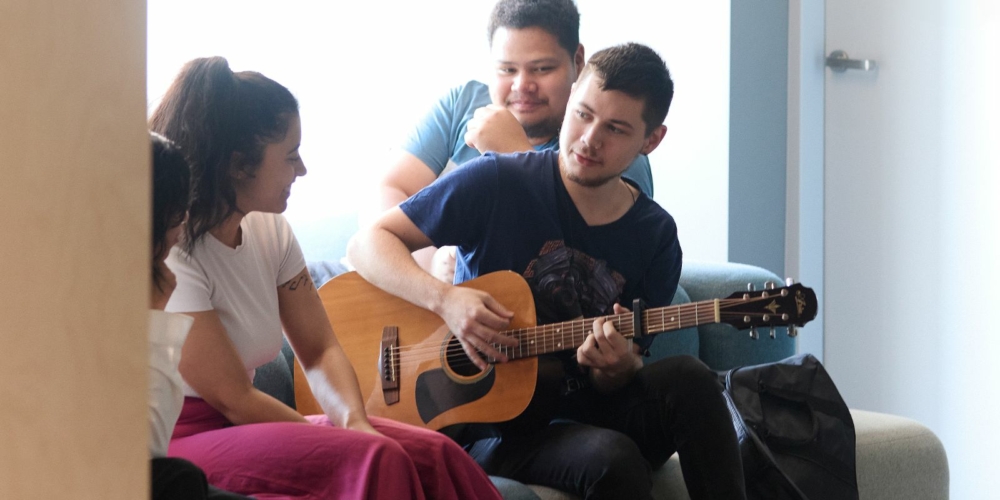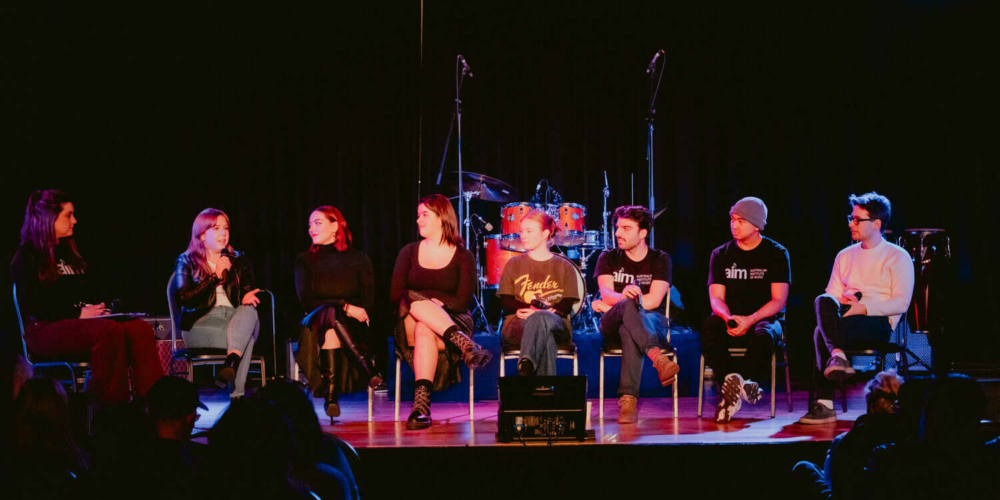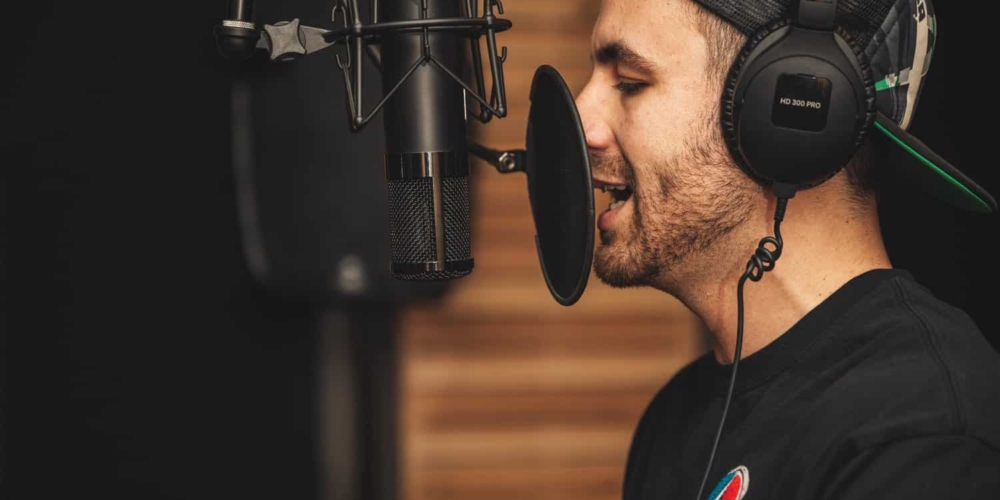To celebrate International Women’s Day, we brought together a panel of accomplished musicians and members of the AIM teaching faculty from a cross-section of specialties for a live panel interview staged at AIM Sydney’s Amphitheatre. Joining us for the expansive talk were AIM lecturers Simone East (Composition and Production), Wendy Dixon (Classical, Music Theatre), Bronte O’Neill (Contemporary – Voice) and Wen Zhu (Classical – Violin). The panel interview was hosted by AIM’s Christina Rowatt. Some highlights below.
Christina: What advice would you give young women or female-identifying musicians navigating the music industry right now?
Bronte O’Neill: Learn a little bit of everything in the industry and have a multi-faceted set of skills. Learn how to set up a PA, invest in a PA, understand equalisation and mixing (even just at a basic level) to be able to mix yourself and to make sure that you actually have a good mix when you’re doing a gig and you’re wanting to be heard at the best possible quality. And as a songwriter and composer, same thing. Learn different skill-sets that are going to be able to put you in the same arena as the top people.
When I was first looking for work in the contemporary covers industry, a lot of my male counterparts were pushing me and booking me gigs and managing me and I got to this point [where I had to ask myself] how can I do this in a way where I’m actually booking my own gigs? That [process included] learning guitar and keyboard a lot better, so I could do solo gigs if I wanted. It included learning how to use a PA, learning how to book properly and make run sheets. Once I had done all of that, I was able to actually go out to all of those same agents and go: “I’m also available for solo work or as my own acoustic duo.” My financial independence just soared from that point. So learning all the different skills that you don’t think you might need, because somebody else will do it for you. Just learn it.
Wendy Dixon: My advice is more of a life thing. With everything you do in music, you must take responsibility for when you have messed up. But don’t assume that because other people have told you that you’re wrong, that all the blame is yours. In your own head, insist that even if they don’t take responsibility for their actions, that you will not take their missteps on board. So it’s not running around and saying “Everybody’s wrong, I’m right.” It is acknowledging what you’ve stuffed up, what you can improve on, what you can get better at, but also refusing to take the blame for other people’s mistakes.
Wen Zhu: For the older students, I’m suggesting that they listen to more live music. Nowadays, we listen to lots of YouTube. But [live music] sounds different. Even if you buy CDs, its a different quality for string players [than the live experience]. And [to my students] – don’t make things perfect. Perfectionists always make things delayed. If you can just do more live music, deal with people as well as play with your friends, even if it isn’t perfect, [it is valuable].
Bronte O’Neill: That’s a really good point in Contemporary as well. I think you watch a lot of singers on YouTube that might sing one song, and how they sing that one song might be a very different vocal technique to singing three 45 minute sets in a row. So going out and seeing a singer actually have to sing three sets and watching their vocal technique [is crucial].
Simone East: Everything [the other panelists] said. Skill up, especially if you’re a composer or songwriter. Even if you aren’t going to produce your own album, you don’t want to go into a studio with a professional producer and not know what you want, and how to articulate that. Don’t avoid learning the technology. Also, if you want to be an orchestral composer or whatever, go to live music. It’s just completely different. And don’t say sorry. And know when something is your fault, and when something is not your fault. And call people out. Definitely.




